Year in Review
A Year of Challenges
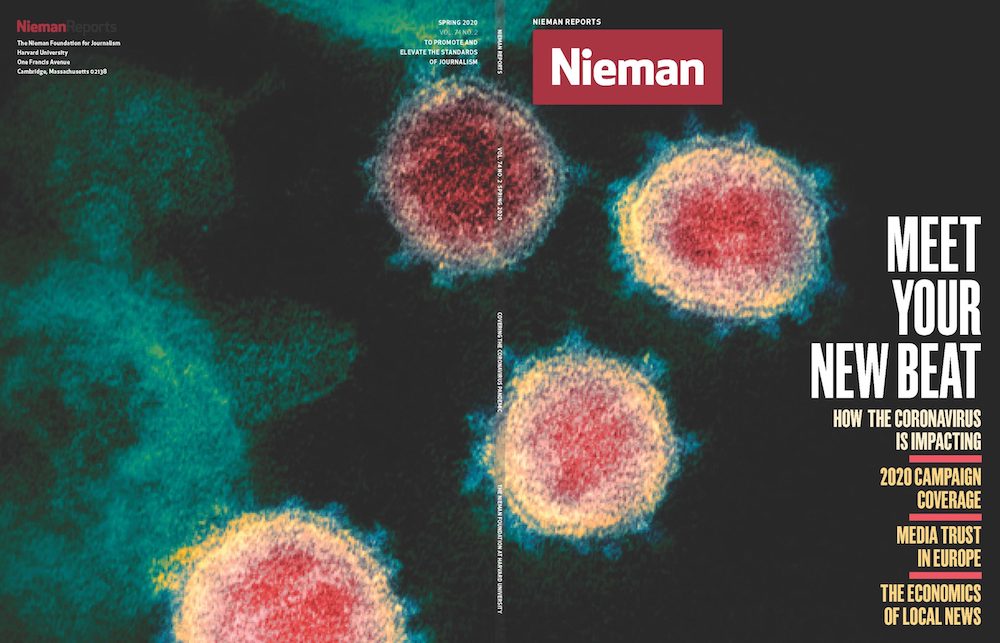
Nieman Reports Spring 2020 magazine cover. The issue focused on covering the coronavirus.
The Nieman Foundation in 2020 responded to unprecedented challenges and issues that affected us all and had a profound impact on how journalists work. These problems strained resources, endangered democratic norms, splintered communities and imperiled the health and well-being of people around the globe. From the COVID-19 pandemic and the contentious U.S. presidential election to the racial injustice that magnified the Black Lives Matter movement, cataclysmic natural disasters fueled by climate change, massive job losses and so much more, the breaking news in 2020 never stopped.
For journalism, the year presented new problems as more local news outlets closed, reporters were threatened, attacked or jailed and sinister disinformation campaigns continued to undermine reporting. But the year also saw journalists do some of their very best work, providing crucial information during the coronavirus pandemic, investigating corruption and exposing dangerous propaganda and lies on a number of fronts.
Nieman Responds
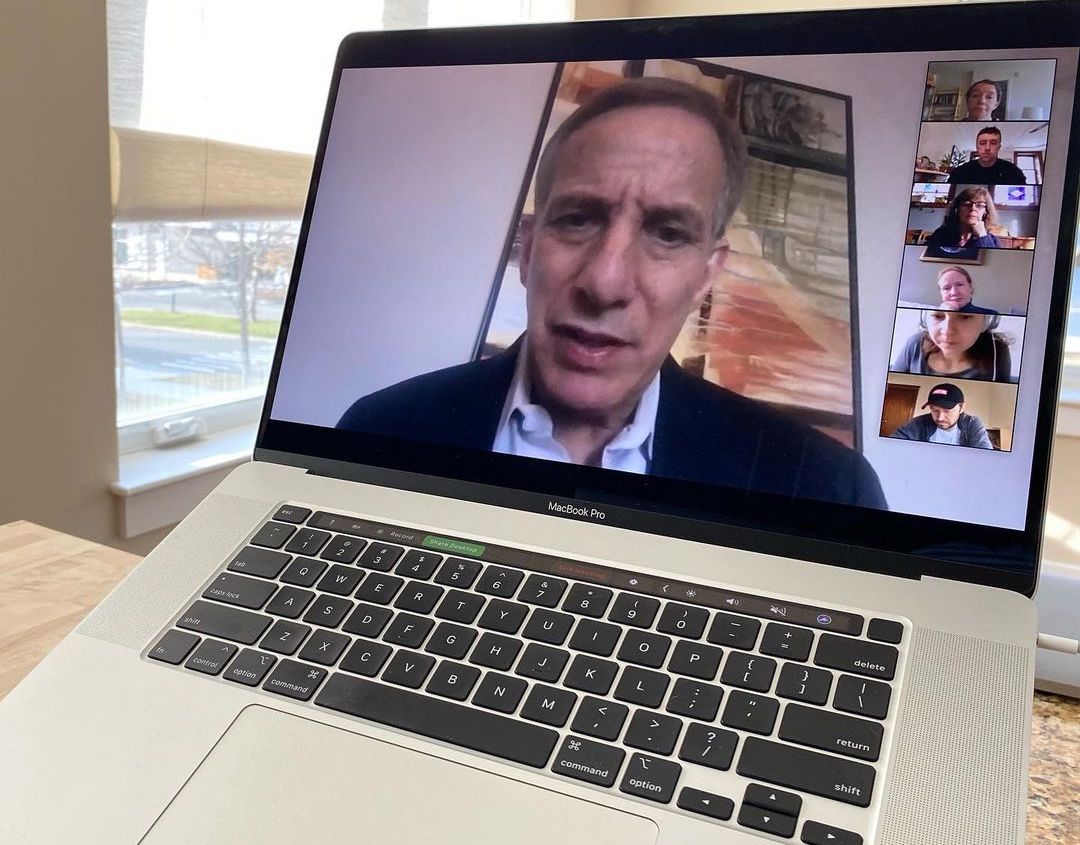
Nieman staff and fellows talk with Rick Berke, the co-founder and executive editor of STAT, on March 18, 2020.
Nieman began the year with our usual calendar of events, but in March, when the coronavirus pandemic forced Harvard to close its doors and send students and staff home, we quickly discovered new ways to learn and work together online.
Classes, meetings , soundings and seminars all took place on Zoom. The Nieman class of 2020 pivoted to a remote fellowship and developed an informative series of DIYs on everything from data visualization and photography to audio reporting and fundraising for journalism.
Restrictions on gatherings forced the cancellation of all in-person events including our annual Georges Conference on College Journalism, our spring journalism award ceremonies and “Inside Stories,” an evening of live storytelling with Nieman Fellows planned in conjunction with the American Repertory Theater at the Oberon in Cambridge.
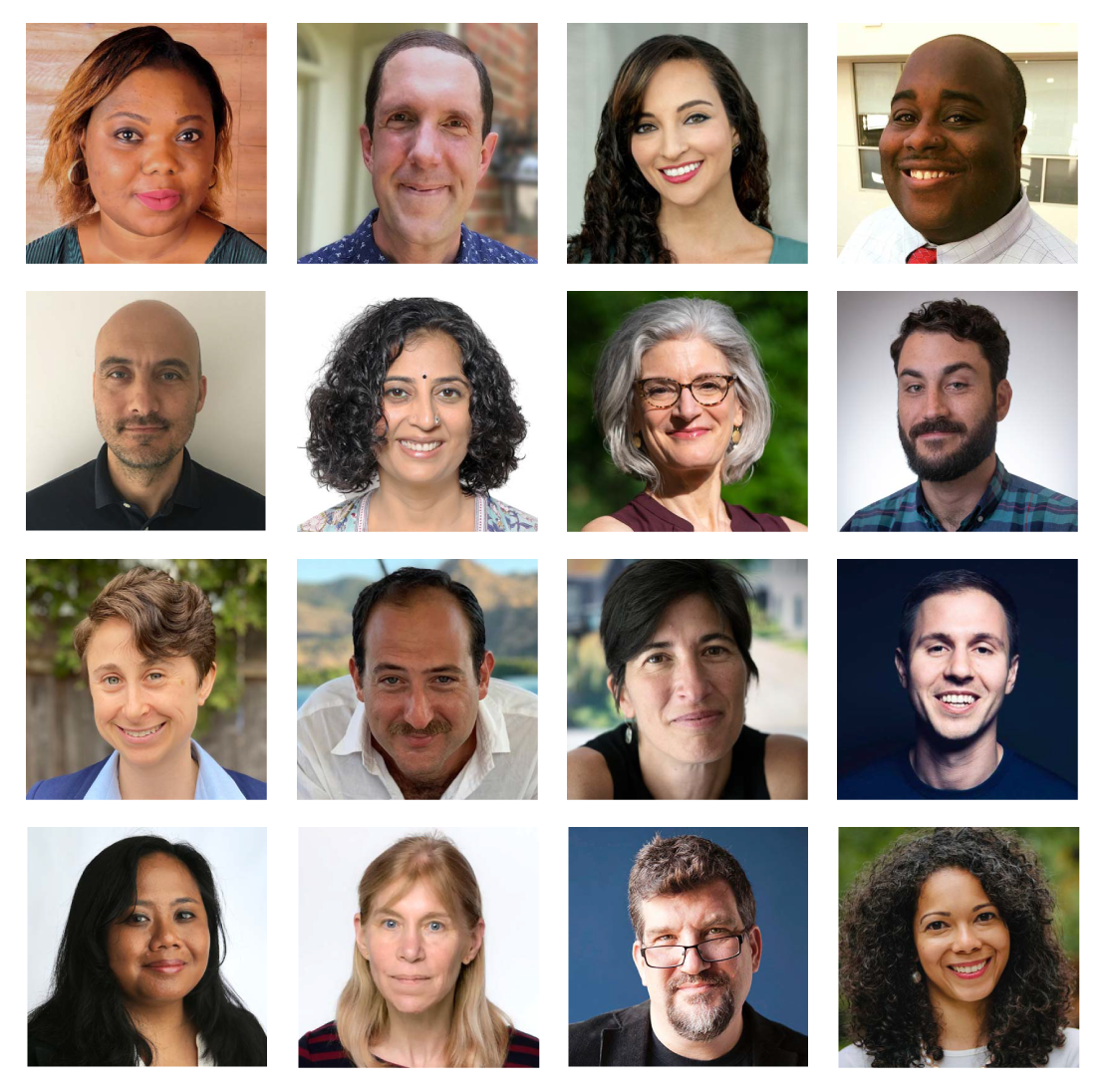
2021 Nieman Fellows
Although we weren’t able to host our traditional end-of-semester Lippmann House certificate ceremony in May, we did meet with Harvard President Lawrence Bacow for a wide-ranging online conversation about the impact of the pandemic on higher education.
In July, we announced the Nieman class of 2021—Nieman’s 83rd cohort. While smaller than usual with just 16 journalists, the class has more than made up for what it lacks in size with abundant enthusiasm for collaborating and learning online at Harvard.
During the summer, we refocused our visiting fellowship program and invited journalists wishing to develop projects that advance racial justice and public health journalism in the U.S. to apply. In December, we announced the 2021 Visiting Fellows, a group of 12 media innovators who will work on projects that look at new and better ways to report on race and public health concerns in the U.S. Working remotely, they will use resources at Nieman and Harvard to develop ideas that range from vaccination education initiatives for vulnerable populations to a podcast series focused on stories of Indigenous resilience in the face of the COVID-19 surge to a plan that will increase diversity within public radio to actionable diversity, equity and inclusion proposals for leaders in the journalism industry, just to name a few.
Selected proposals support one or more of the following goals:
- Advance the representation of journalists of color throughout the news industry
- Improve coverage of underreported stories and communities
- Explain the impact of coronavirus on an area or group
- Enhance reporting expertise and coverage of public health in a community
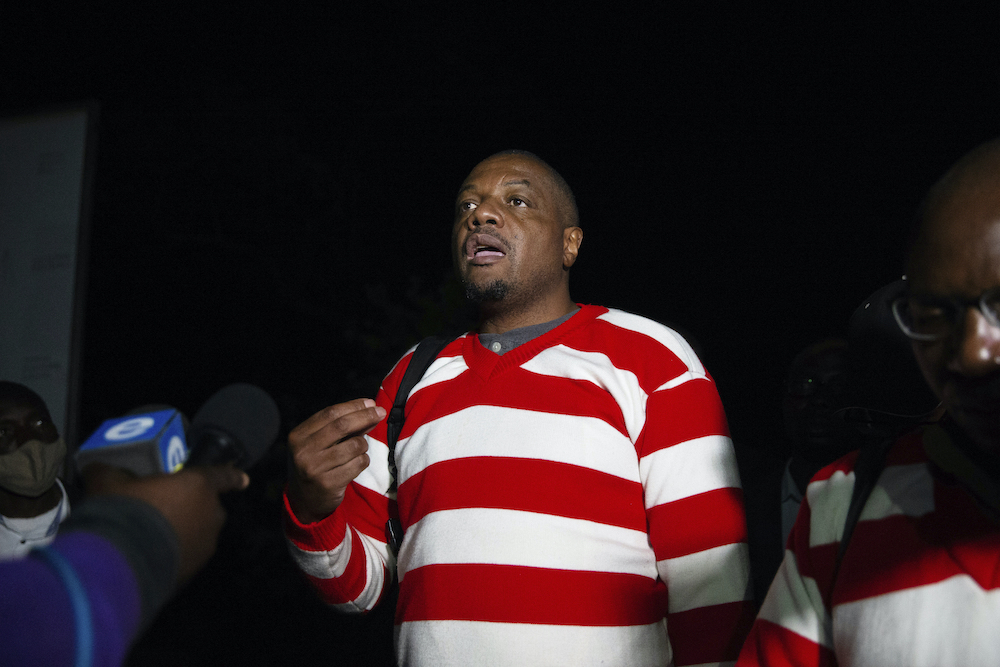
Zimbabwe journalist Hopewell Chin'ono, still wearing his prison jersey, talks to the press following his release from Chikurubi Maximum Prison in September 2020.
Overseas, 2010 Nieman Fellow Hopewell Chin’ono was arrested in his home in Zimbabwe in July, charged with inciting violence, a move designed to silence his reporting on corruption. Chin’ono’s Nieman classmates, the Nieman staff and others throughout the Nieman community worked publicly and behind the scenes to raise awareness of the journalist’s plight and government. The foundation called for his immediate release and the dismissal of all charges and joined other press freedom and human rights organizations in a letter appealing to South African President Cyril Ramaphosa, chair of the African Union, for urgent action in Chin’ono’s case and on behalf of all journalists jailed across Africa. Chin’ono was released on bail after spending 45 days in jail but was rearrested in November and again released 17 days later. His case is still pending and underscores the precarious course journalists must negotiate when reporting under regimes hostile to the press.
In a Nieman Reports interview with 2016 Nieman and fellow Zimbabwean Fungai Tichawangana, Chin’ono talked about the work ahead and the importance of the support he received from Nieman Fellows worldwide. “Whenever one of us, and by one of us, I mean a journalist, whenever one journalist is injured, it’s an injury to all of us. We must stand up for journalism.” In a related Q&A, his attorney Beatrice Mtetwa added: “The treatment Hopewell and other political and civil society activists get subjected to is deliberately designed to humiliate them and to intimidate other journalists into not venturing into certain types of stories.”
Also in 2020, Nieman welcomed Sarah Scire as a staff writer for Nieman Lab and at the end of the year we said goodbye to Nieman Reports senior editor Jan Gardner, who retired after 11 years on the job.
Influential Voices
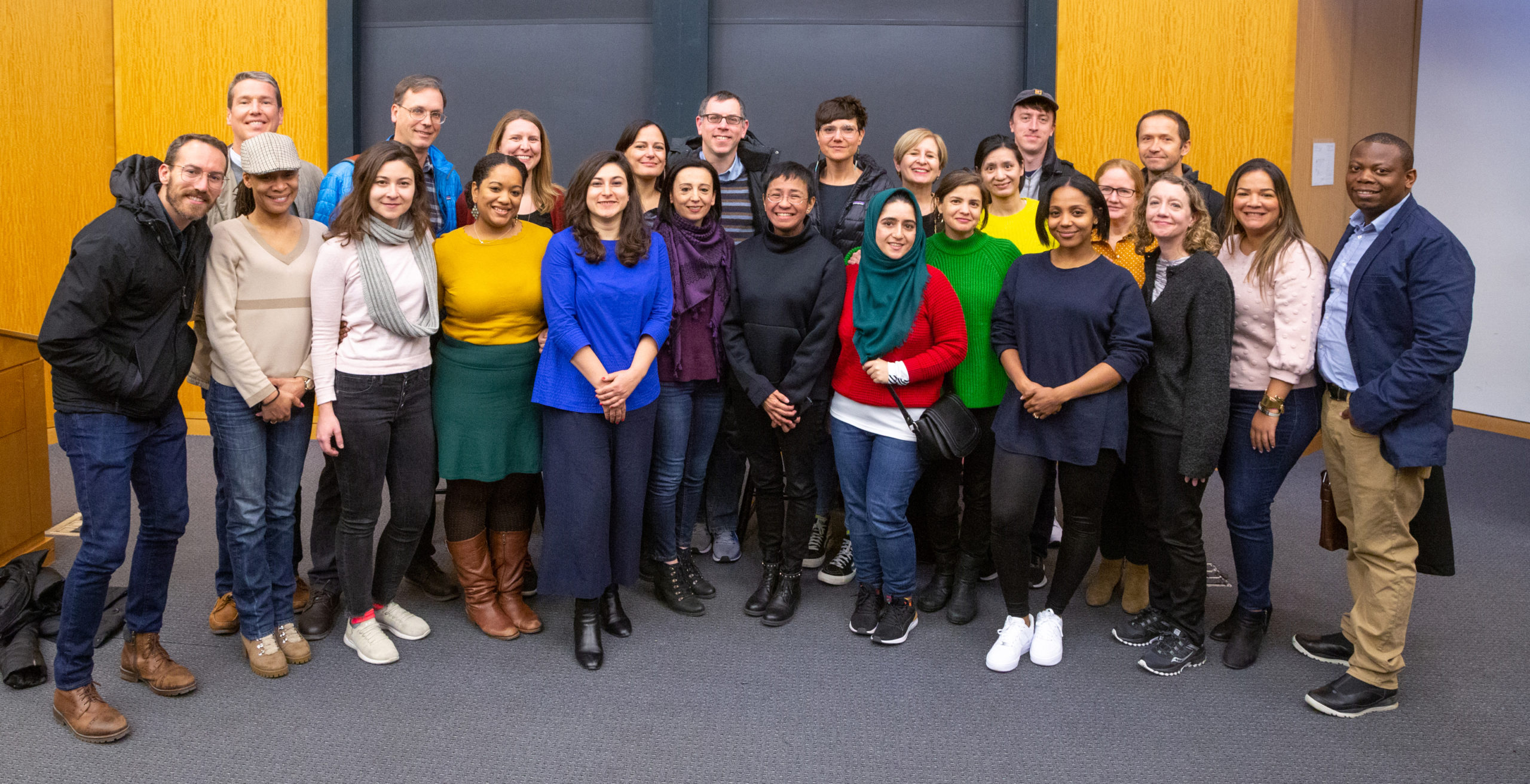
Rappler CEO Maria Ressa (center, in black) with the 2020 Nieman Fellows and Nieman curator Ann Marie Lipinski at Harvard University, March 5, 2020.
Both in person and online, Nieman Fellows and staff heard from great thinkers and experts in a variety of fields in 2020. In March, Philippine journalist Maria Ressa, CEO and executive editor of the news site Rappler, joined Nieman curator Ann Marie Lipinski in conversation. She spoke about her campaign to fight disinformation and advocate for a free press, not only in the Philippines, but around the world, and the need to stand up to bullies, find courage and fight for the truth.
Rick Berke, co-founder and executive editor of STAT, the health and medicine news site that has been providing critical information about the COVID-19 pandemic and vaccine news, spoke twice: once in the spring to help us better understand the coronavirus pandemic and again in the fall to discuss how the public health crisis might affect November elections.
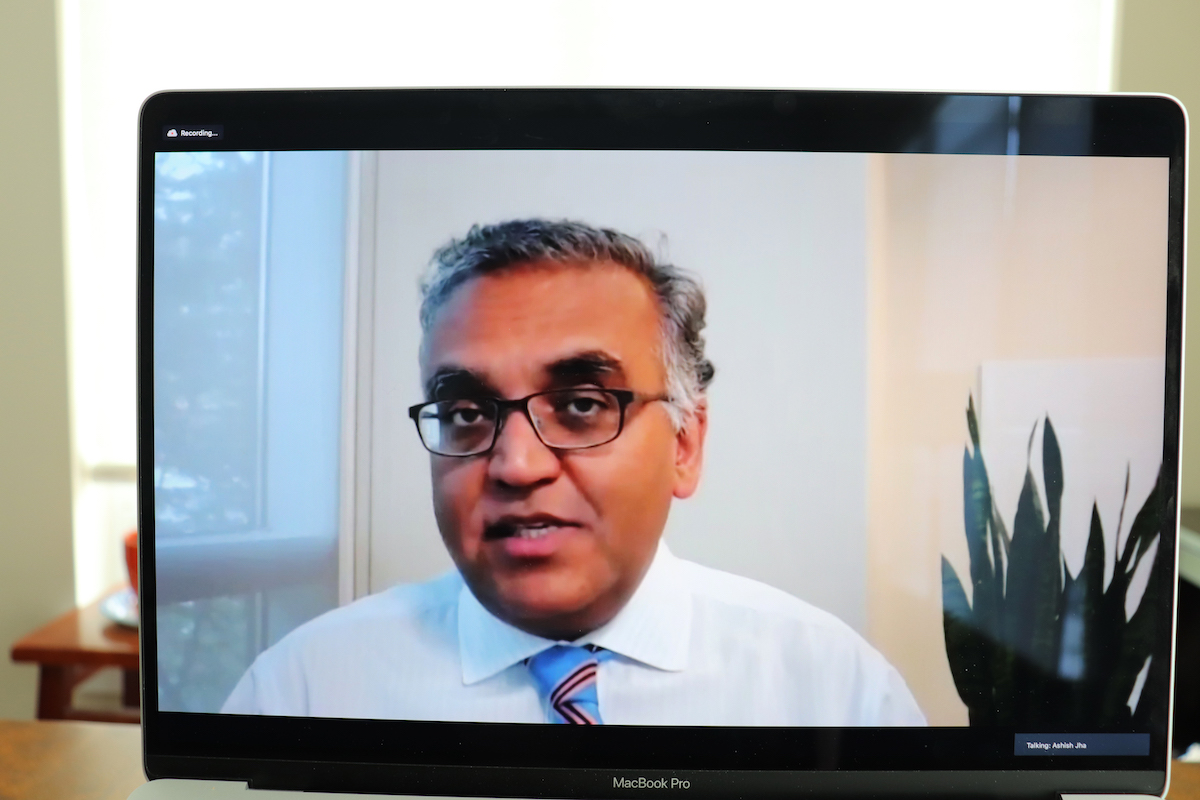
Dr. Ashish Jha speaking with Nieman Fellows virtually on September 9, 2020.
In the fall, we began our seminar series with Dr. Ashish Jha, dean of the Brown University School of Public Health and an expert on pandemic preparedness and response. Dr. Jha spoke authoritatively and frankly about the coronavirus, the medical response to the pandemic, the implications of political meddling in the public health crisis and the imperative to get accurate information to the public.
Jerry Mitchell, founder of the Mississippi Center for Investigative Reporting, joined 2020 Nieman Fellow Carrie Johnson, NPR’s national justice correspondent, for a conversation about his work, racial injustice and his new book “Race Against Time: A Reporter Reopens the Unsolved Murder Cases of the Civil Rights Era.” Mitchell’s stories have helped lead to the convictions of Ku Klux Klansmen guilty of some of the nation’s most notorious crimes, including the 1963 assassination of the Mississippi NAACP leader Medgar Evers.
Jill Lepore, professor of American History at Harvard and a staff writer at The New Yorker, discussed her new podcast on the history and demise of truth, “The Last Archive.” She was joined by producers Ben Naddaff-Hafrey and Sophie McKibben.
Bill McKibben, educator, journalist and leader of the climate campaign group 350.org, discussed the importance of covering climate change in a session moderated by 2020 Nieman Fellow Rob Chaney, who covers natural resources and science at the Missoulian in Montana.
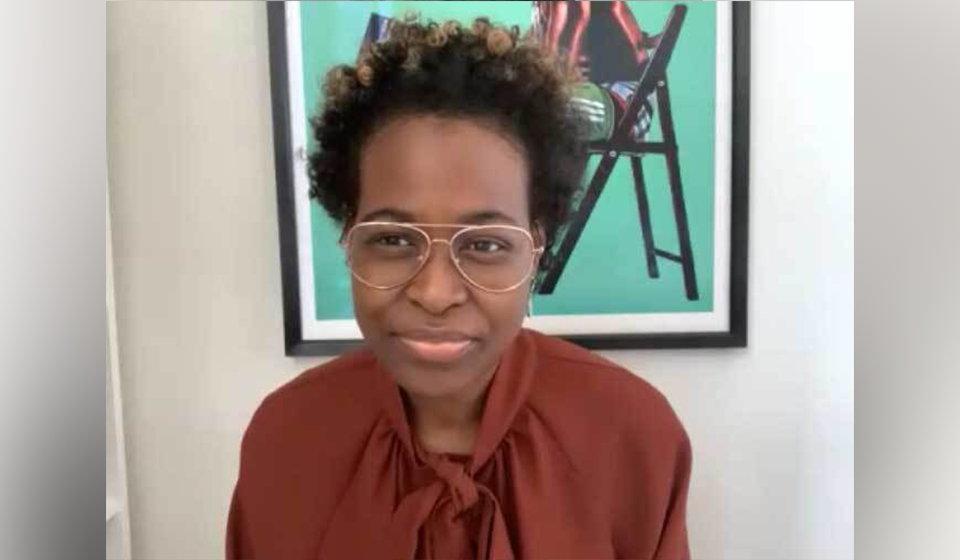
Errin Haines, editor-at-large for The 19th*, spoke with Nieman Fellows over Zoom on September 30, 2020.
Errin Haines, editor-at-large for The 19th*, the new nonprofit news outlet covering the intersection of women, politics, and policy, joined us for a seminar and observed: “Women are the majority of the electorate. We shouldn’t be talked about like a special‑interest group anymore.”
In other sessions, Harvard professors Steven Levitsky and Daniel Ziblatt discussed their incisive book “How Democracies Die”; Washington Post columnist E.J. Dionne offered both pre- and post-election analysis of the November presidential campaign; and New York Times editorial page editor Katie Kingsbury finished Nieman’s event schedule with a shop talk about the Times’ editorial policies and the importance of offering a broad diversity of opinions.
Nieman-to-Nieman
In an effort to help Nieman alumni stay connected at a time when so many have felt isolated due to coronavirus restrictions and travel bans, we introduced Nieman-to-Nieman conversations, a new programming initiative featuring Niemans in conversation with alumni and others discussing their work.
These conversations have included:
- STAT’s infectious diseases reporter Helen Branswell, NF ’11, talking with FiveThirtyEight science writer Maggie Koerth, NF ’15, about covering COVID-19.
- NPR’s London correspondent Frank Langfitt, NF ’03, discussing Brexit and the pandemic in Europe.
- Retired Nieman curator Bob Giles, NF ’66, speaking with Lisa Mullins, NF ’10, host of WBUR’s “All Things Considered,” about his book “When Truth Mattered: The Kent State Shootings 50 Years Later.”
- A panel discussion about covering the Black Lives Matter movement and protests for racial justice with Nieman board member Ernie Suggs, NF ’09, who reports on race for The Atlanta Journal-Constitution, and Juan Arredondo, NF ’19, a Colombian American visual journalist who has been reporting from New York City. The talk was moderated by journalist and producer Wonbo Woo, NF ’16.
- A look at the legacy of race in America, a conversation with Megan Ming Francis, an associate professor of political science at the University of Washington who was recently a visiting associate professor of public policy at Harvard Kennedy School. The talk was moderated by 2020 Nieman Fellow and ABC News producer Jasmine Brown, who spent her Nieman year studying the role of implicit bias in instances of police misconduct.

Clockwise from top left: Anna Fifield, Wenxin Fan, Lucy Hornby, and Edward Wong
- A panel on how China is battling the United States for global influence and restricting journalists within its borders. We heard from Anna Fifield, NF ’14, who recently finished a two-year stint as the Beijing bureau chief for The Washington Post; Lucy Hornby, NF ’20, former deputy bureau chief in Beijing for the Financial Times; and Wenxin Fan, NF ’16, a Wall Street Journal reporter now based in Hong Kong. Edward Wong, NF ’18, New York Times diplomatic correspondent and former Beijing bureau chief, moderated.
- A pre-election Nieman-to-Nieman conversation looking at the race for the White House with political reporters Lisa Lerer, NF ’18, who reports on campaigns, elections, and political power for The New York Times, and John Harwood, NF ’90, a CNN White House correspondent covering President Trump. They shared their extensive experience covering numerous presidential campaigns and predicted what we can expect next from Washington. The talk was moderated by Afsin Yurdakul, NF ’19, a news anchor for Turkey’s Habertürk News Network.
Nieman Publications
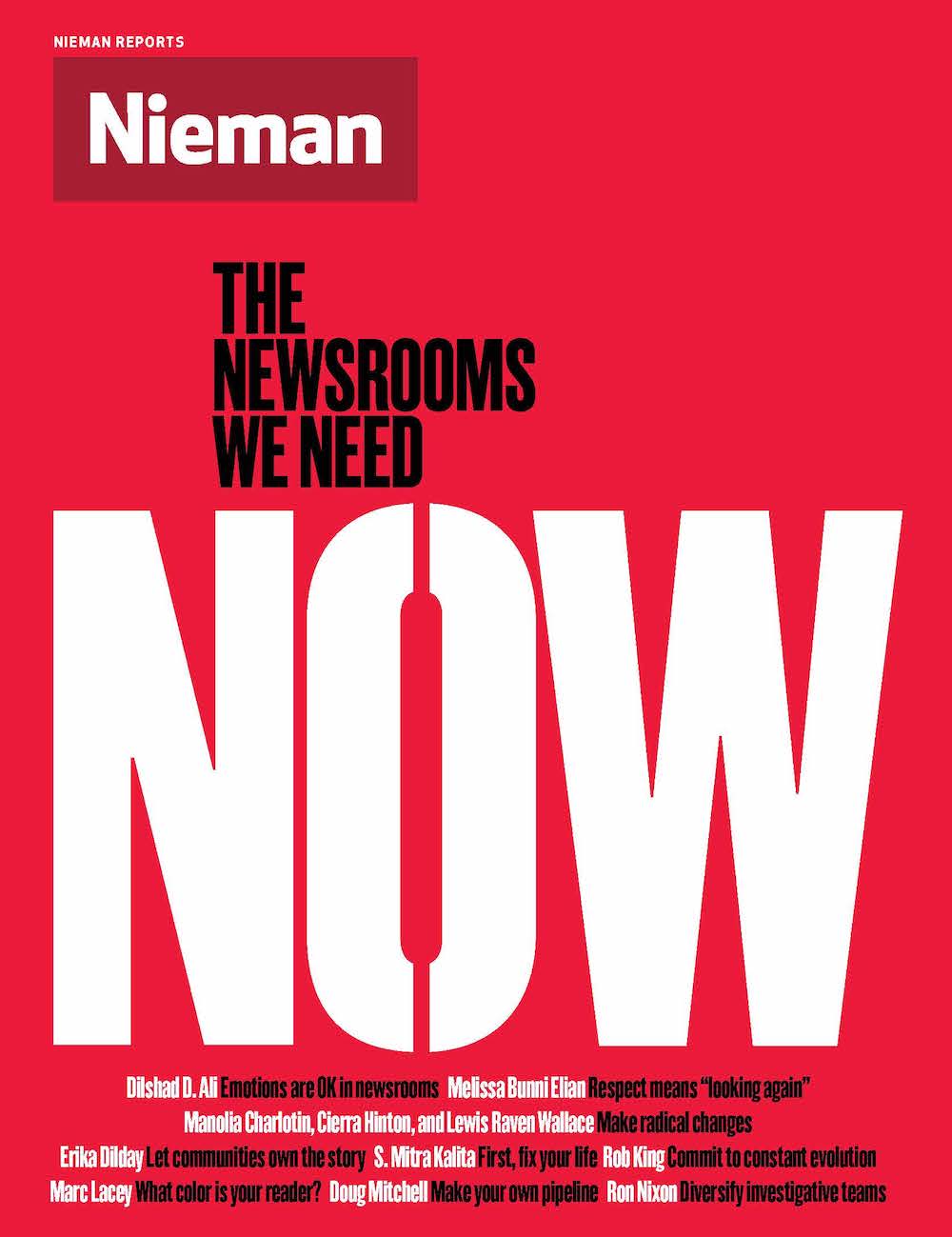
Nieman Reports Fall 2020 cover
Throughout the year, Nieman publications responded to the news by ramping up coverage of the most pressing issues and how they are affecting journalism. Nieman Reports launched “The Newsrooms We Need Now,” an essay series about how journalism should respond to a range of issues, from promoting journalists of color into senior leadership roles to improving coverage of racism and white supremacy. Nieman Reports also examined in-depth new ways to cover the climate crisis, the racial justice movement and the coronavirus pandemic.
In Nieman Storyboard, “The Pivot” began to feature interviews with journalists from all platforms, ages and positions about where they landed after their career plans were derailed, and what they learned along the way. Storyboard also continued to showcase the best in narrative reporting and new pathways to more engaging storytelling.
Nieman Lab continued its influential reporting on misinformation, media innovation and journalism news. The Lab began syndicating The Objective’s biweekly newsletter on communities that journalists in the U.S. have typically ignored. The Lab also continued to commit significant resources to reporting on the rise of misinformation and disinformation, with the “Real News About Fake News” and entered a publishing partnership with the misinformation nonprofit First Draft, strengthening its coverage of these topics. To end the year, the Lab published its much-anticipated annual predictions for the year ahead in journalism.
Journalism Awards
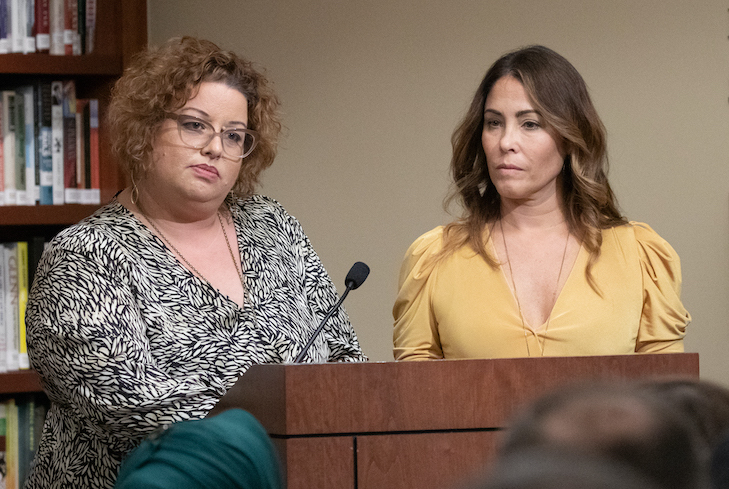
Carla Minet, left, and Omaya Sosa take questions at Lippmann House on Jan. 27, 2020.
In January, the 2020 Nieman Fellows welcomed journalists Carla Minet and Omaya Sosa from Puerto Rico’s Puerto Rico’s Centro de Periodismo Investigativo (CPI, the Center for Investigative Journalism) to Nieman to accept the Louis M. Lyons Award for Conscience and Integrity in Journalism. The fellows selected CPI for the award for investigating the most pressing issues on the island, including the government’s mismanagement of public funds; the incorrect death count after Hurricane Maria; and the secret communications among the island’s top political leadership, which sparked protests and ultimately led to Gov. Ricardo Rosselló’s resignation. Minet, CPI’s executive director, and Sosa, the center’s co-founder, described the meticulous work involved in conducting their investigations.
Other Nieman journalism awards presented in 2020 were:
- The Worth Bingham Prize for Investigative Journalism, presented to The Wall Street Journal and PBS’s “Frontline” for the joint investigation “Forsaken by the Indian Health Service.” The reporting team exposed decades of abuse, negligence and dysfunction inside the Indian Health Service, the federal agency that provides health care to more than two million Native Americans.
- The Taylor Family Award for Fairness in Journalism, presented to reporter Pamela Colloff for “He’s a Liar, a Con Artist and a Snitch. His Testimony Could Soon Send a Man to His Death,” an investigation of the dangers of relying on jailhouse informants. Colloff is a senior reporter at ProPublica and staff writer for The New York Times Magazine.
- Finalists were Ashley’s Story,” an Indianapolis Star series by Marisa Kwiatkowski that tells the story of Ashley Peterson, a young woman whose challenges in life reflect the devastating long-term impact of childhood trauma; and “The TurboTax Trap” by ProPublica reporters Justin Elliott and Paul Kiel, which uncovered years of deceptive practices by Intuit, the maker of TurboTax software.
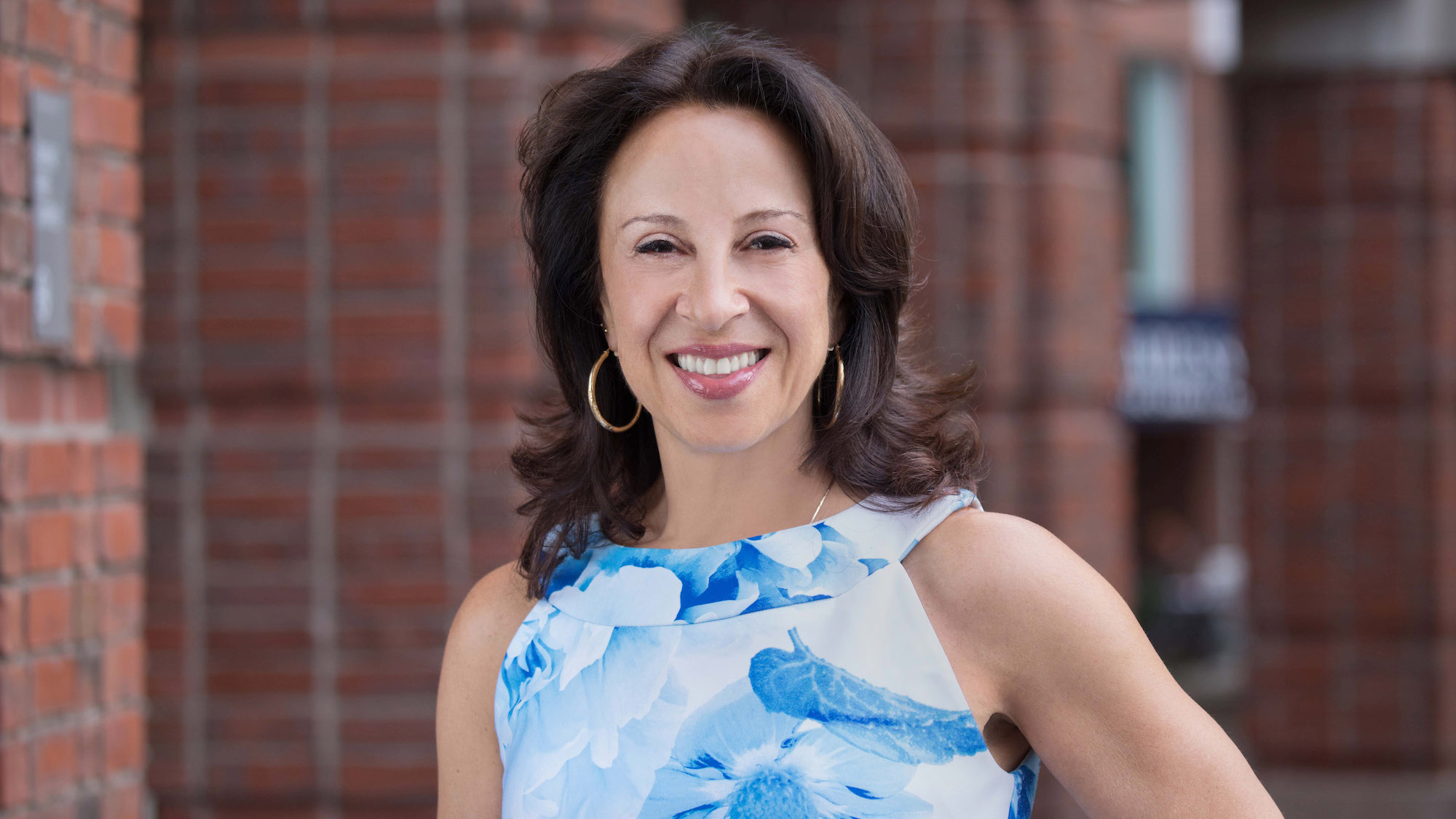
Maria Hinojosa
- The F. Stone Medal for Journalistic Independence, presented to Maria Hinojosa, founder of The Futuro Media Group. During her 30-year career, Hinojosa’s groundbreaking documentaries and investigative reports have brought to light stories about many Americans living in communities too often ignored by traditional media.
- The Anthony Lukas Prize Project Awards, presented together with Columbia Journalism School
- The J. Anthony Lukas Book Prize. Winner: Alex Kotlowitz for “American Prison: A Reporter’s Undercover Journey into the Business of Punishment,” (Finalist: Emily Bazelon for “Charged: The New Movement to Transform American Prosecution and End Mass Incarceration”)
- The Mark Lynton History Prize. Winner: Kerri K. Greenidge for “Black Radical: The Life and Times of William Monroe Trotter,” (Finalist: Daniel Immerwahr for “How to Hide an Empire: A History of the Greater United States”)
- The J. Anthony Lukas Work-in-Progress Award. Winners, Bartow J. Elmore for “Seed Money: Monsanto’s Past and the Future of Food” and Shahan Mufti for “American Caliph: The True Story of the Hanafi Siege, America’s First Homegrown Islamic Terror Attack”
Nieman Programming
Nieman welcomed speakers from a wide range of disciplines in 2020, both in person and online, in a series of seminars, shop talks and workshops. Guests included Harvard professors, newsroom leaders, journalism innovators and many others who shared their expertise and research.
Emmy Award-winning writer David Mandel spoke about the intersection of reality and comedy writing with 2020 Nieman Fellow Gülsin Harman. Mandel was the executive producer and showrunner for the HBO political comedy “Veep” and a writer for “Saturday Night Live,” “Seinfeld,” “The Simpsons” and “Curb Your Enthusiasm.”
Joan Donovan, director of the Technology and Social Change (TaSC) Research Project at Harvard Kennedy School’s Shorenstein Center on Media, Politics, and Public Policy, discussed her research on memetic warfare, the effects of disinformation campaigns and adversarial media movements. Members of her team also conducted a workshop to teach fellows how to detect, document and debunk media manipulation and disinformation using the methods of investigative ethnography.
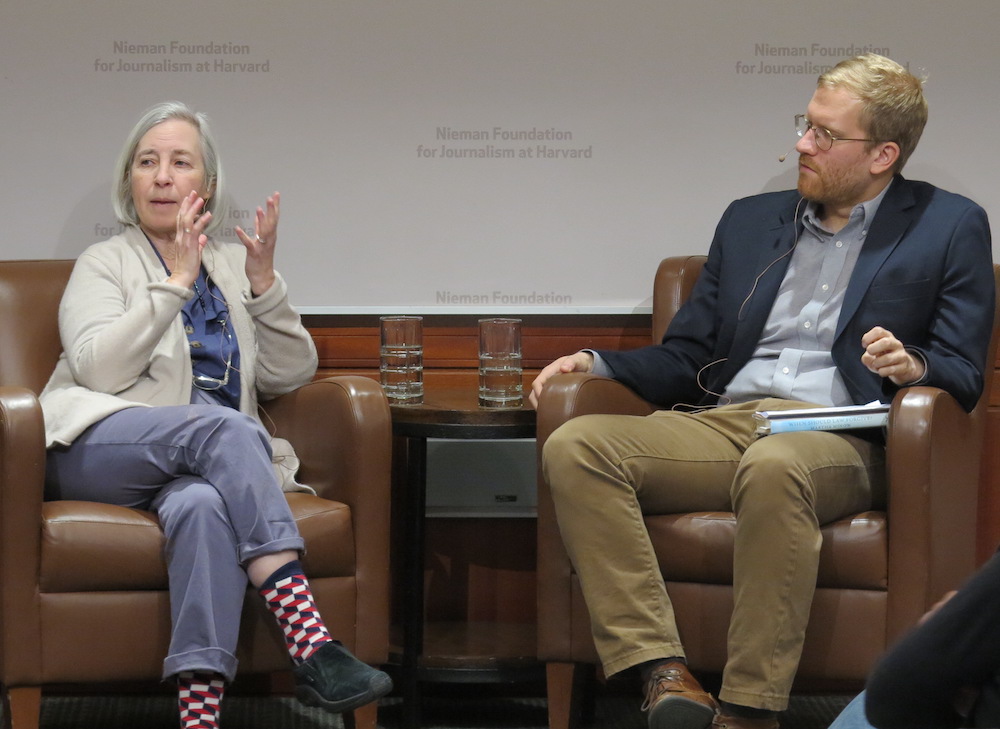
Martha Minow, left, and Johnny Kaufmann
Martha Minow, Harvard University Distinguished Service Professor and former dean of Harvard Law School, spoke with 2020 Nieman Fellow Johnny Kaufmann, a reporter with Atlanta’s public radio station WABE, about her latest book “When Should Law Forgive?”
Michael Morisy, founder and chief executive at MuckRock led a training session on understanding FOIA, working with public records, federal and state laws and investigative tactics for getting documents from even the most resistant agencies.
Barbara Grosz, Higgins Research Professor of Natural Sciences at Harvard, discussed her research on artificial intelligence.
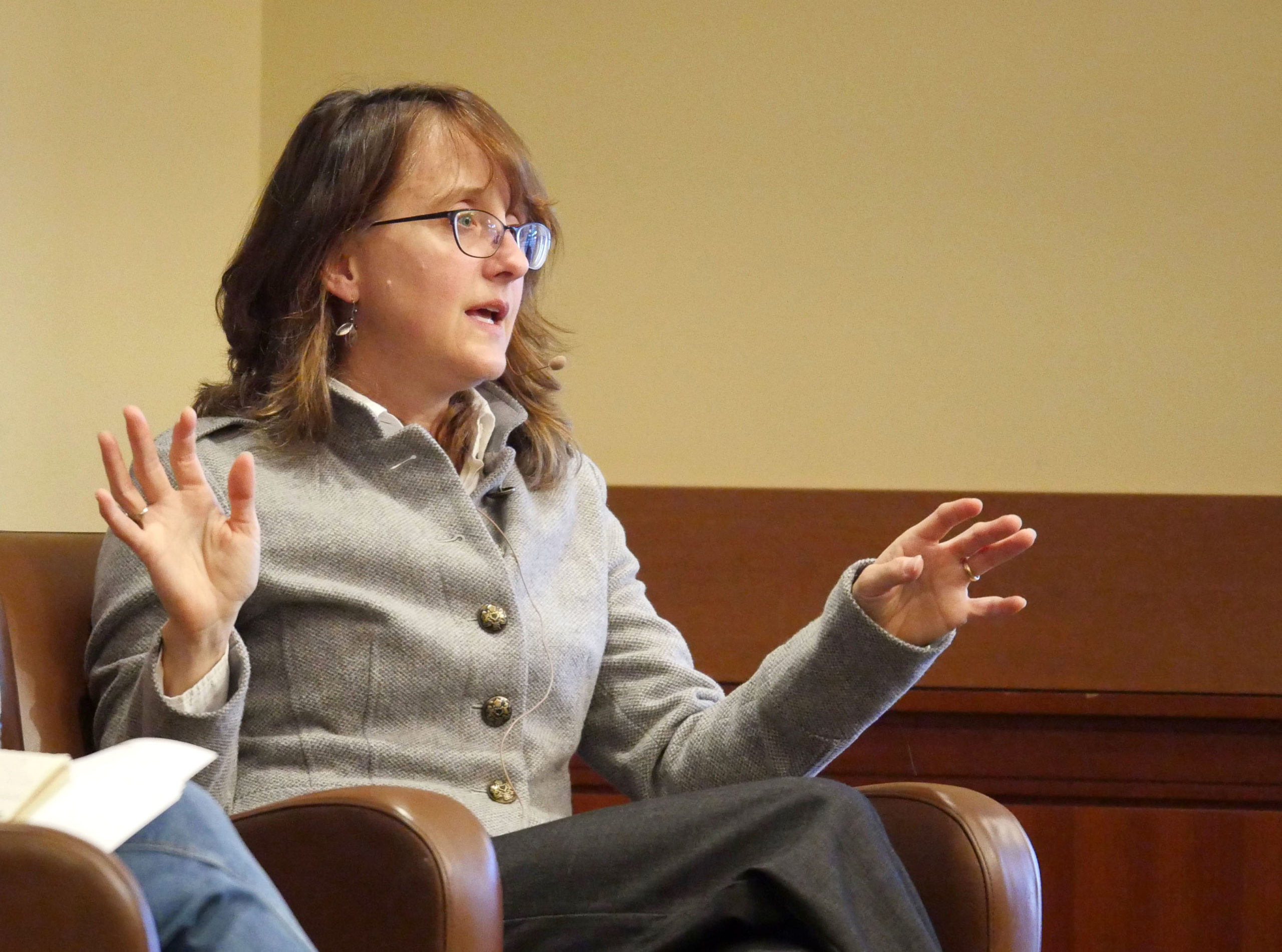
Caroline Light
Caroline Light, director of undergraduate studies in the Program in Women, Gender, and Sexuality Studies at Harvard, discussed her work and her books including “That Pride of Race and Character: the Roots of Jewish Benevolence in the Jim Crow South” and “Stand Your Ground: A History of America’s Love Affair with Lethal Self-Defense.”
Brian McGrory, editor of The Boston Globe, discussed the Globe’s response to the COVID-19 pandemic and his newsroom’s plans to weather new financial challenges.
Matt Murray, editor-in-chief of The Wall Street Journal, spoke about the challenges of running his global newsroom during the COVID-19 pandemic.
Ronald Heifetz, founder of the Center for Public Leadership and a senior lecturer in public leadership at Harvard Kennedy School, led a session on adaptive leadership in times of crisis.
Kerry Donahue, director of training at PRX and Stephanie Kuo, project manager of PRX’s Project Catapult, led a podcasting workshop.
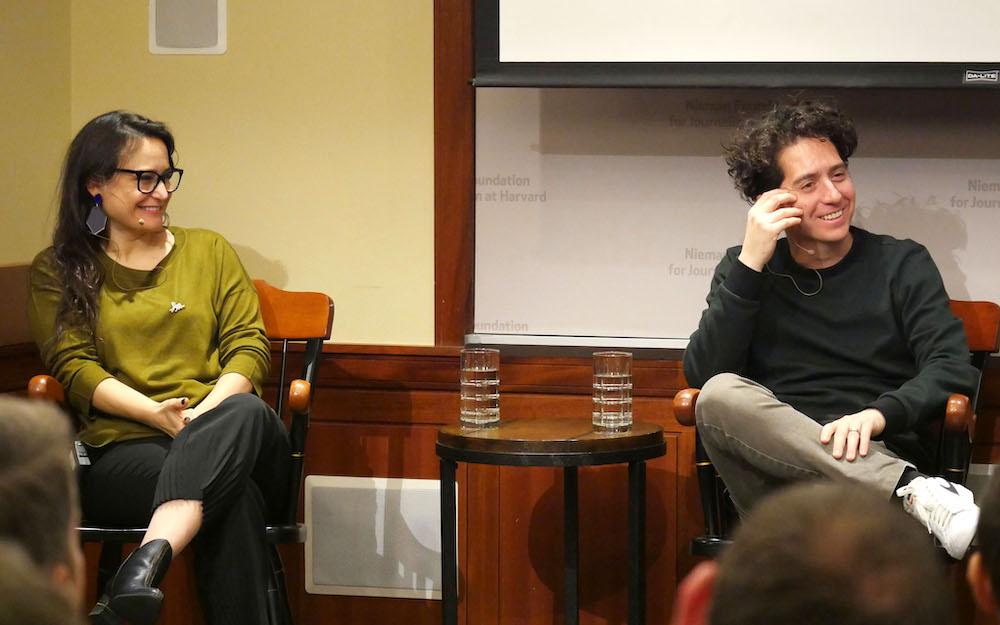
Carolina Guerrero, left, and Daniel Alarcón
The co-founders of the Spanish-language podcast “Radio Ambulante,” CEO Carolina Guerrero and host/executive producer Daniel Alarcón, visited to discuss how they built their successful nonprofit and the innovative ways they engage with their audience. The pair spoke with Carolina’s sister, Natalia Guerrero, a 2020 Nieman Fellow and a regular contributor to the BBC, based in New York.
Lewis Raven Wallace, a 2020 Knight Visiting Nieman Fellow and co-founder and national program director of Press On, discussed objectivity and justice in journalism as well as his Nieman research on movement journalism.
Mahzarin Banaji, Richard Clarke Cabot Professor of Social Ethics at Harvard, conducted a workshop on implicit bias based on her book “Blindspot: Hidden Biases of Good People.”
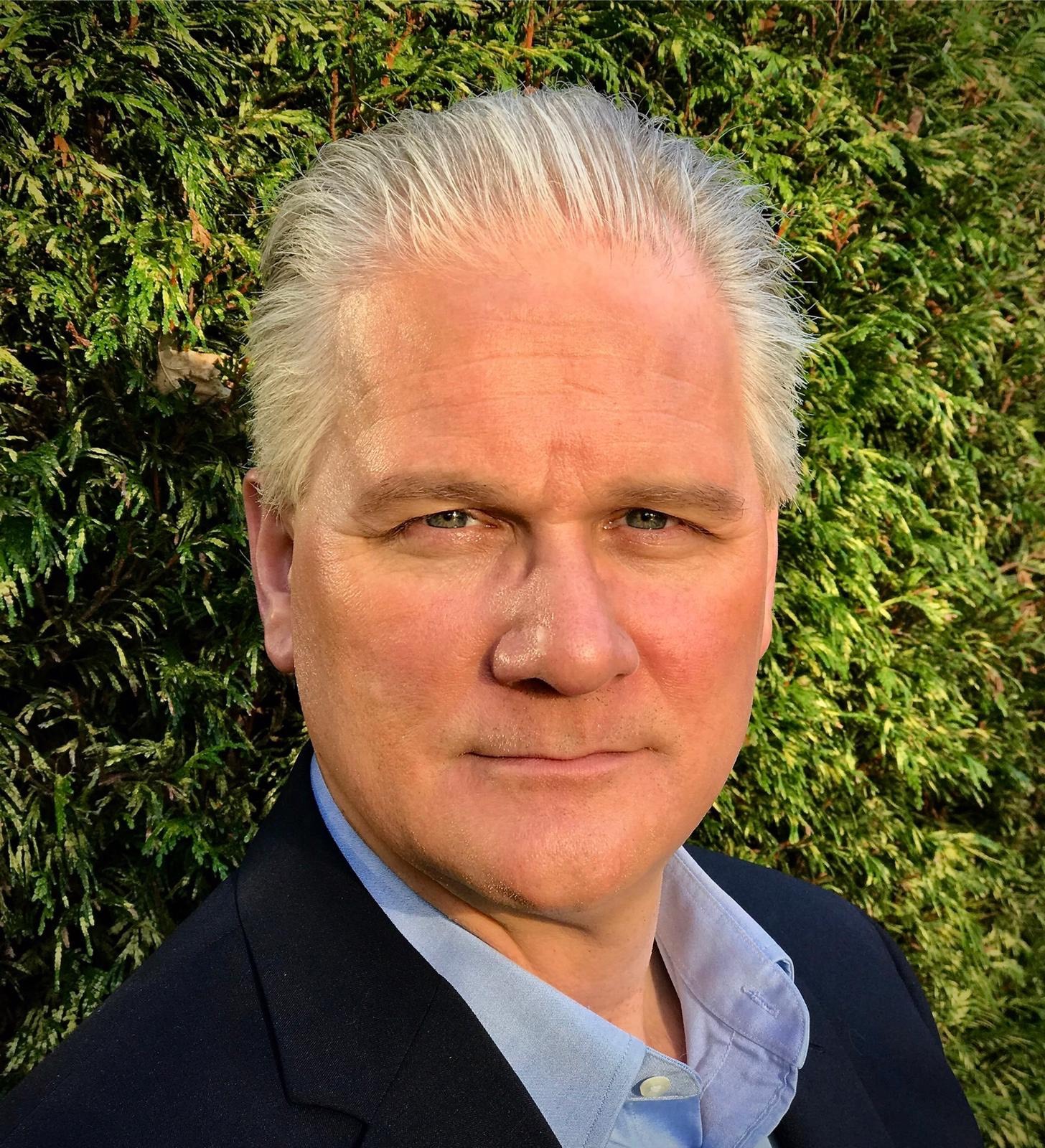
Frank Langfitt
Frank Langfitt, NPR’s London correspondent and a 2003 Nieman Fellow, led a shop talk about covering Brexit, Britain in the age of COVID-19 and lessons learned during his long career reporting around the globe, including driving a taxi in China.
William Uricchio, professor of comparative media studies and founder of the MIT Open Documentary Lab, presented a look at how different forms of media have been received through the years.
Stefanie Murray and Joe Amditis from the The Center for Cooperative Media shared best practices, tips and techniques for effective online teaching, hosting and learning in the era of Zoom communications.
Chris Robichaud, senior lecturer in ethics and public policy at Harvard Kennedy School and director of pedagogical innovation at the Edmond J. Safra Center for Ethics, led fellows in a leadership exercise using a “Zombie pandemic” simulation.
Following the death of Supreme Court Justice Ruth Bader Ginsburg, Harvard Law School Professor Michael J. Klarman, who clerked for Ginsburg on the United States Court of Appeals for the D.C. Circuit, discussed the Supreme Court vacancy and its potential impact on many aspects of American life.
The Nieman Fellows and staff heard from a wide range of speakers who talked about the U.S. November elections, including Harvard Law School Professor Nicholas Stephanopoulos, who spoke about the threat possible post-election lawsuits; and Kennedy School Professor Pippa Norris, who gave an overarching presentation looking at the U.S. elections, the transition crisis and the state of American democracy. Sally Buzbee, senior vice president and executive editor at the AP, also provided a detailed overview of the mechanics involved in covering and calling the election.
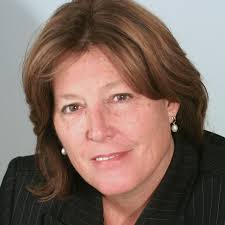
Sally Jenkins
Sally Jenkins, sports columnist at The Washington Post, joined 2021 Nieman Fellow John Archibald for a conversation about her writing.
Ben Smith, media columnist at The New York Times, talked with 2021 Nieman Fellow Joe Bernstein about his work.
Jill Johnson, director of dance at the Harvard Dance Center, led 2021 fellows in an interactive session with movement and dance.
Atlantic science writer Ed Yong discussed the U.S. COVID-19 response failure during a webinar organized by the Harvard T.H. Chan School of Public Health.
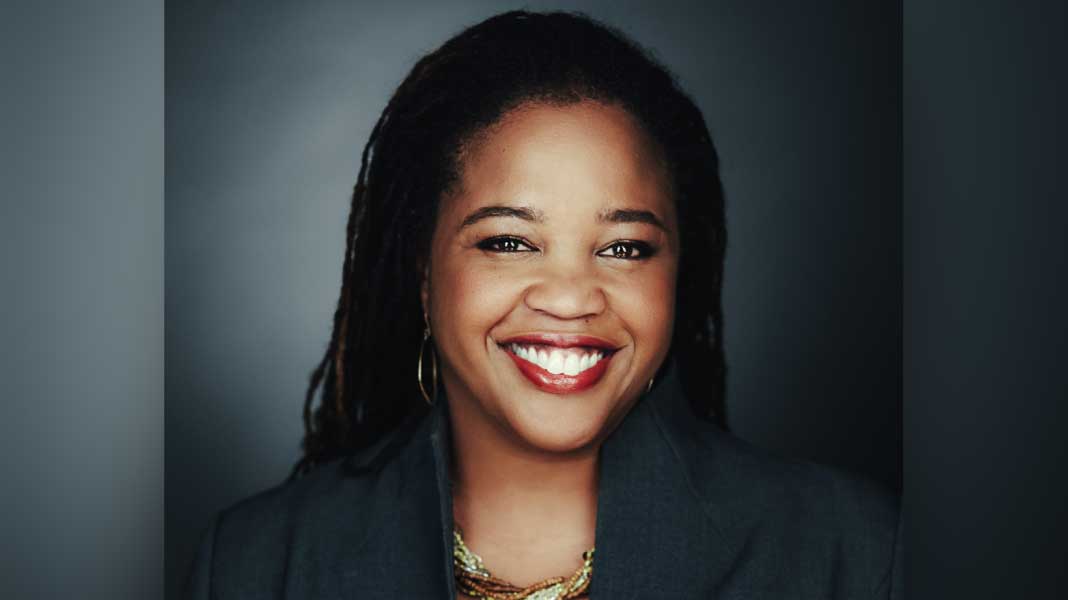
Farai Chideya is the creator and host of “Our Body Politic," a weekly podcast by and for Black women and women of color
Farai Chideya, creator and host of Our Body Politic , a syndicated public radio show/podcast about Black women and all women of color, talked about her work as a reporter, political and cultural analyst and educator.
Leah Wright Rigueur, associate professor of public policy at Harvard Kennedy School, talked about her research on Black conservatives.
Marina Walker Guevara, executive editor of the Pulitzer Center, and Aric Toler, a writer, analyst and workshops leader at Bellingcat, taught an investigative reporting seminar.
DIYs
Throughout the year, Nieman Fellows organized informal talks and trainings—“DIYs”—on a wide range of topics, and often shared their expertise with their Nieman classmates.
The Class of 2020
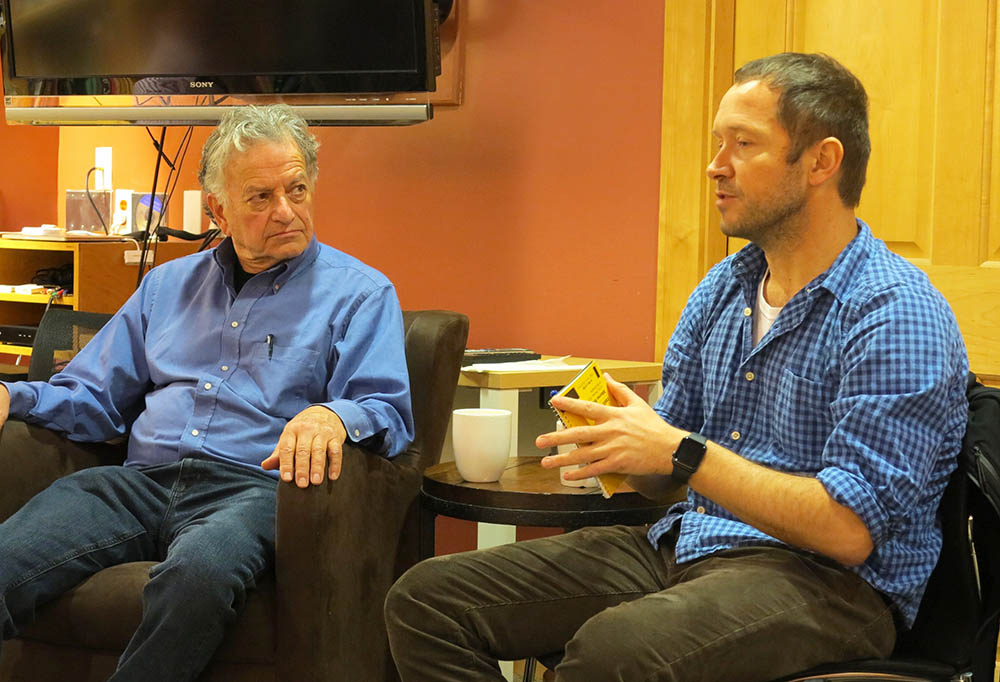
Lowell Bergman, left, and Andras Petho
2020 Nieman Fellow Andras Petho invited David Fallis, deputy editor of The Washington Post’s investigations unit, to share best practices for investigative journalists. Petho, co-founder and editor of Direkt36, an investigative journalism center in Hungary, also asked veteran investigative reporter Lowell Bergman to share lessons from his long career.
Andras and his wife Gabriela Manuli organized a talk with Bridget Gallagher, founder of the Gallagher Group LLC, who spoke about fundraising for journalists.
2020 Nieman Fellow Gülsin Harman (Tukey) moderated a panel discussion that examined reporting under autocracies with Nieman classmates Pavel Kanygin (Russia), Ji Tianqin (China), Andras Petho (Hungary) and Obey Manayiti (Zimbabwe).
2020 fellows also shared updates about important news stories in countries/regions around the world during a session on international perspectives. Participants were Hannane Ferdjani (West and North Africa); Obey Manayiti (Southern Africa); Ji Tianqin (China); Lucy Hornby (Asia0; Andras Petho (Hungary); Pasha Kanygin (Russia, Ukraine, Belarus); Alex Dickinson (Australia); Rania Abouzeid (Middle East); Selymar Colón (Puerto Rico and the Caribbean) and moderator Natalia Guerrero (continental Latin America).
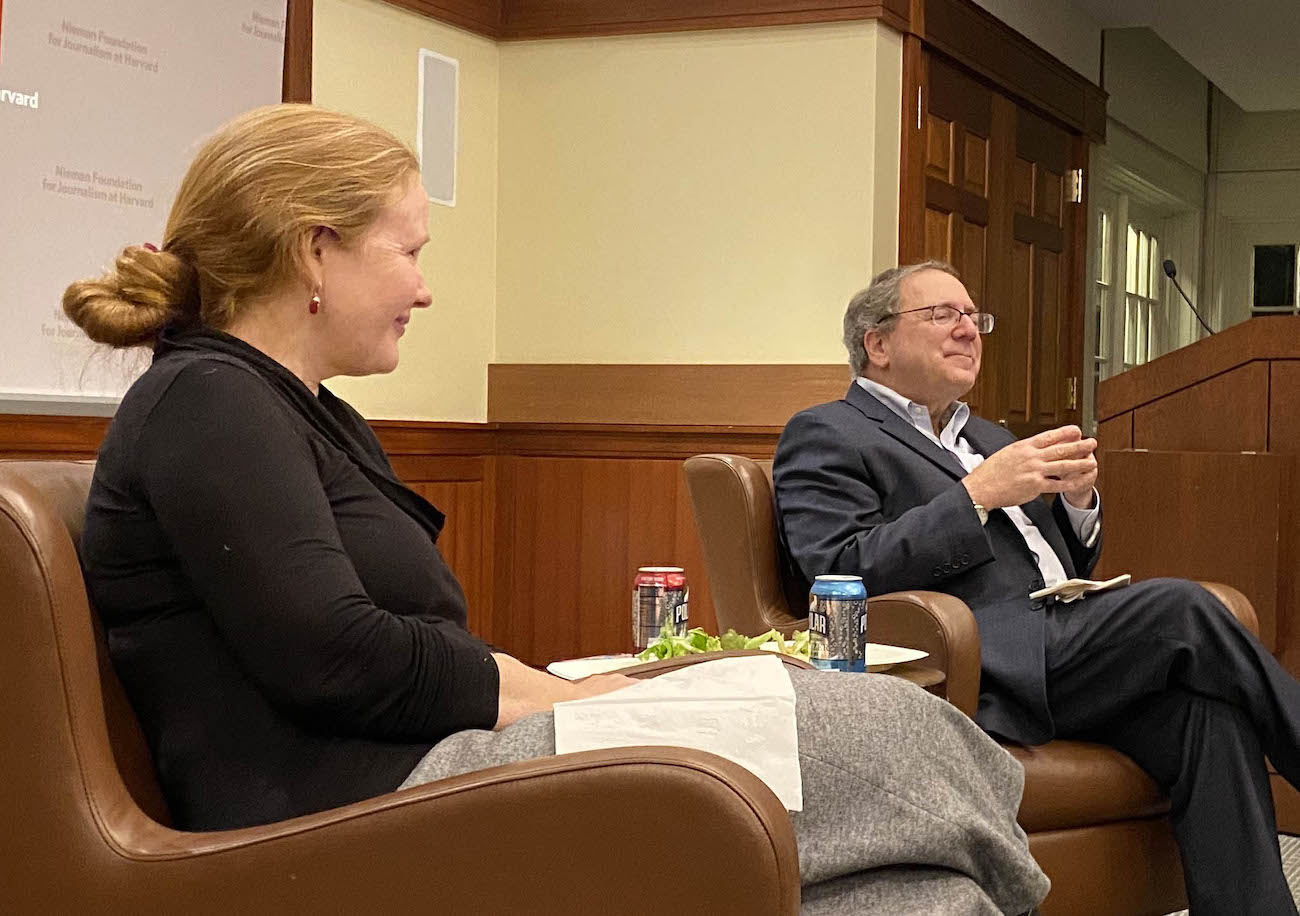
Lucy Hornby, left, and David Sanger
2020 Nieman Fellow Lucy Hornby moderated a conversation with David Sanger, national security correspondent for The New York Times
Fellows Todd Wallack and Ashwaq Masoodi hosted a film screening of the film “Spotlight” and led a discussion about reporting on sexual assault. Berkman Klein Center fellow and filmmaker Leonard Cortana helped moderate the discussion.
Tennessee Watson organized a conversation on empathy in journalism and joined Nieman classmate Jasmine Brown for a look at journalists’ role in promoting social justice and catalyzing social change.
Watson and 2020 classmates Johnny Kauffman and Carrie Johnson also ran an audio workshop. Watson additionally hosted a workshop on proper breathing and speaking techniques, taught by Erika Bailey, a professional dialect coach and the Head of Voice and Speech at American Repertory Theater, and Lee Nishri-Howitt, a voice, text, dialect, and acting coach.
Photojournalist Lisa Krantz taught a photography DIY.
Selymar Colón organized a data visualization training session with Harvard Library’s Jess Cohen.
Nieman’s digital and audience engagement editor Leah Becerra and Nieman Fellow Nour Malas led a session on audience engagement for journalists.
Nieman curator Ann Marie Lipinski led a discussion with fellows about women and leadership.
Nieman deputy curator James Geary, led a discussion about wit, drawing from his book “Wit’s End: What Wit Is, How It Works, and Why We Need It.”
The Class of 2021
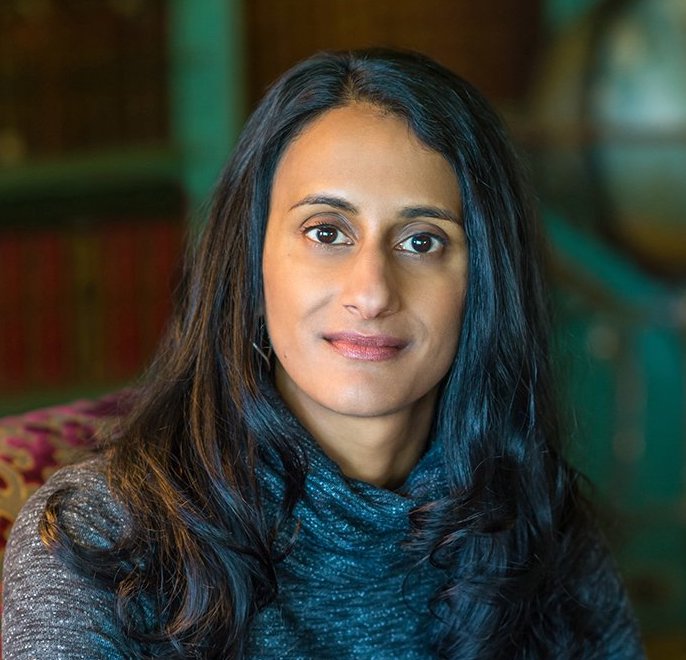
Bina Venkataraman
2021 Nieman Fellow Austin Bogues invited several guests to address the topics of race and polarization, including David French, author of “Divided We Fall: America’s Secession Threat and How to Restore Our Nation”; Jennifer Hochschild, the Henry LaBarre Jayne Professor of Government and professor of African and African American Studies at Harvard; Bina Venkataraman, editorial page editor at The Boston Globe; and Eric Deggans, NPR TV and media critic, who spoke about how to cover race without perpetuating prejudice.
Vidya Krishnan led a conversation with Soha Bayoumi, assistant dean of Harvard College, about the intersection of medicine and political conflict.
Marc-Olivier Bherer hosted two talks to explore conservative perspectives, one with Rod Dreher, senior editor at The American Conservative and the second with Eric Nelson, Robert M. Beren Professor of Government at Harvard.
Emily Corwin organized a talk on ethics and identity in newsrooms and also led a conversation with sociologist and psychiatrist Jonathan Metzl of Vanderbilt University, author of “Dying of Whiteness,” on how racial resentment is killing white Americans.
Amber Payne and her husband Rayner Ramirez hosted a discussion about their new film “Harlem Rising,” which chronicles the history and lives transformed by Geoffrey Canada’s Harlem Children’s Zone, one of the most ambitious social experiments created to break the cycle of poverty in the U.S.
